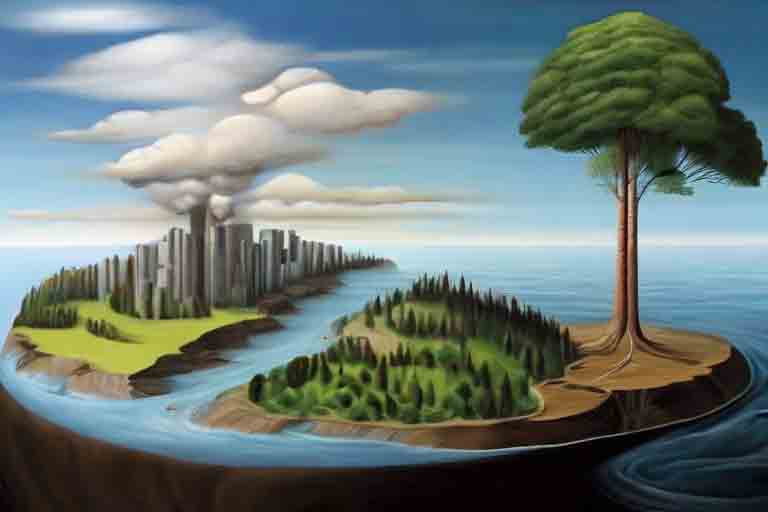

 Human Impact on Earth's Biosphere-Exploring Present and Future Implications
Human Impact on Earth's Biosphere-Exploring Present and Future Implications
Human activity has long been recognized as a significant force shaping the environment. From the dawn of civilization to the modern age, humans have altered ecosystems, exploited resources, and inadvertently triggered a mass extinction event known as the Holocene extinction. The consequences of our actions are profound and far-reaching, with implications not only for the present but also for the distant future.
The Holocene extinction, which began in the 1950s and continues unabated, represents a biotic crisis of unprecedented scale. Scientists estimate that approximately 10% of all species have been lost by 2007, with projections suggesting that up to 30% of species are at risk of extinction within the next century. This alarming trend is driven by habitat destruction, the spread of invasive species, poaching, and climate change – all of which are directly or indirectly influenced by human activity.
Today, human influence extends to more than a third of the Earth’s land surface, with about 20% of global primary production appropriated by humans. The atmospheric concentration of carbon dioxide has risen by nearly 50% since the Industrial Revolution, contributing to climate change and further exacerbating ecological imbalances.
The long-term consequences of this persistent biotic crisis are daunting. Biodiversity loss and the homogenization of biotas could lead to the proliferation of opportunistic species such as pests and weeds. Meanwhile, microbial life stands to benefit from nutrient-enriched environments, potentially leading to unforeseen ecological shifts. The emergence of novel species adapted to human-dominated ecosystems may further complicate ecological dynamics, while the extinction of large vertebrates and the shortening of food chains could disrupt entire ecosystems.
Beyond ecological impacts, humanity faces existential risks that have the potential to reshape the planet on a global scale. These include anthropogenic threats such as climate change, nuclear proliferation, and the misuse of emerging technologies like nanotechnology. Additionally, natural events such as pandemics, asteroid impacts, or runaway climate feedback loops pose significant risks to human civilization.
The probability of these scenarios occurring is uncertain, making it challenging to assess the magnitude of the threat they pose. However, the potential consequences are dire, ranging from societal collapse to the extinction of the human species itself. Should humanity face such a fate, the remnants of our civilization – from towering skyscrapers to ancient monuments – would gradually decay over millennia, leaving behind a testament to our existence.
In the face of these challenges, it is imperative that we take proactive measures to mitigate the impact of human influence on the biosphere. This requires collective action at local, national, and global levels to conserve biodiversity, reduce carbon emissions, and promote sustainable development practices. By recognizing the interconnectedness of all life on Earth and embracing our role as stewards of the planet, we can work towards a future where humans coexist harmoniously with nature, ensuring the health and vitality of our planet for generations to come.